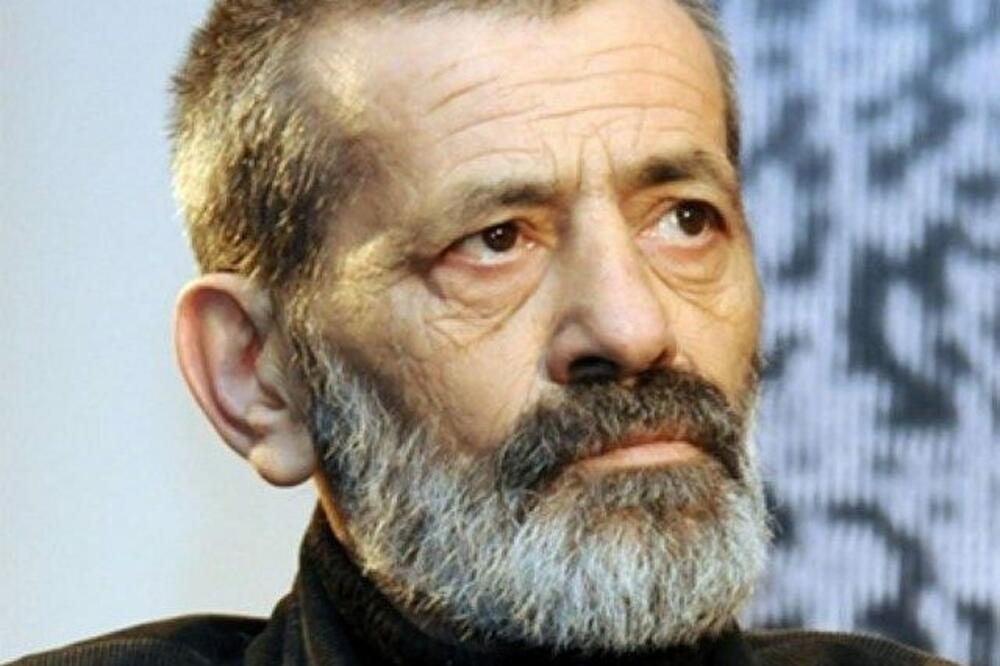The news of a friend's death turns us into perfect directors: a whole movie unfolds in our head, all the best shots are there, the friend is always perfectly photographed, like John Wayne Code Hawkes, everything is in its place, every important moment and meeting, conversation, like in the best documentaries. That movie for one viewer can last for days, and years... At least in the case of people you've known for almost half a century.
Ljub Đurkovića I met indecently back in 1975 or 1976. It was summer, a student from Cetinje and Sarajevo came to his father's to convey some greetings from Bosnia. I remember him wearing the then popular army shirt and jeans.
At the end of the seventies, my friend found a cache full of books somewhere around his building. He immediately invited me and a good part of the books ended up in my library. On each book, on the first page behind the cover, the name "Ljubomir Đurković" was neatly written. The first editions of the previous editions Kishovich book, several exceptional books on literary theory and theater studies... Even before I saw the owner's name, the selection of books told me unequivocally that he was a good character. The first time I met that Sarajevo student, now a tenant in Titograd (with typical tenant problems, obviously), I explained where his books ended up. The next time he came to my parents I took him to a room where a stack of his books was waiting for him. He was delighted, but he didn't take it all back. He left some for me, with a warm recommendation. Including "The Agony of Romanticism" Maria Praca and "Iconological Studies" Ervin Panovski, both from the legendary library Literature and civilization. And for that I am infinitely grateful to him, even today.
In the middle and late eighties, we were united by the dusky spirit of an era and attempts to think of alternatives...
In the context of important Montenegrin writers of the time, Ljubo acted as a life-saving refreshment, diversity that makes everything easier. As soon as the so-called national topics, everyone became incurably serious, frowning, used to every hardship, because that is what is expected of national fighters. Ljubo, I say, was a healing opposition to all that. With him, no conservative impulse could ever be received, even in the fog of the national struggle, which is (as we see, we have been watching for a long time) an ideal environment for the flourishing of conservatism and banality of all kinds.
At the end of the nineties, he returned from Amsterdam, and I am a witness, Podgorica suddenly became a funnier (and more European) city.
A picture from that time. In the night hours, on the barely lit streets of Podgorica, the lonely and exalted Lj. Đ. he encountered a group of Montenegrin policemen. That was the time after partition Milo - Momir, when the police suddenly became all-powerful. "Here you are, Milo's praetorians," announced the poet. The answer was quite - poetic... Angry policemen did not forgive the night name-calling on the street. In the morning, while the event is recounted in detail, a younger colleague says to Ljub: "Your poor choice of words cost you dearly." If they knew or if you could explain to them what Praetorian means, they would take you out for drinks and maybe dinner... Let's say you told them Milo's plumes, they would kiss you, for sure. Like this, they don't know what it is a praetorian, and they must have thought it was some kind of sexual perversion. So a poorly chosen word cost you dearly.” After Amsterdam, of course, it takes some time to get used to Podgorica and Montenegro. And with Ljub, that was also spectacular. And literary, to the end, like everything else.
Because he was a great poet, the most important Montenegrin playwright of our time, an exceptional editor on the public service and in the national theater. A true cosmopolitan. A man who wore each of his non-conformities so beautifully.
And, the most important thing for the writer, regardless of the humorous objection of his younger colleague, was the man who always chose the right word.
Bonus video:





